1800s postcard stirs thoughts of family
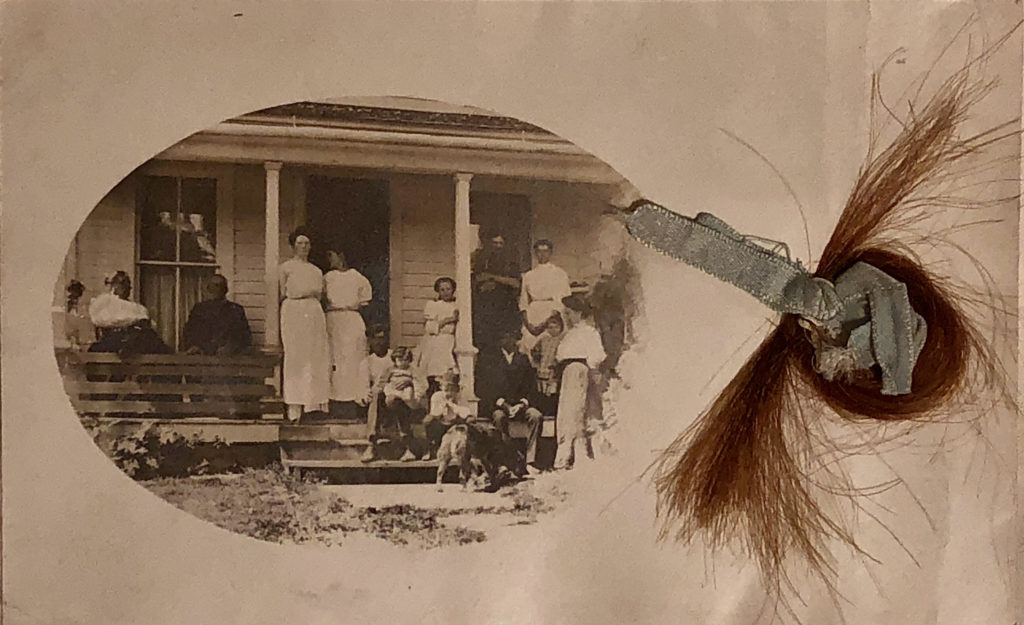
During the Civil War some ladies in Boalsburg, PA placed flowers on the graves of Civil War heroes. Ever since, families have gathered the last weekend in May to pause and remember those who served.
My great-grandfather Sheldon Watrous, born in the 1830s, fought for the Union army. I have a picture of him in uniform with his wife, Carrie. It was in a shoe box with others that Grandma Watrous gave me as a young woman as we sat at her dining room table, discussing photos from the past.
Another shows a large family Grandma couldn’t identify, printed on an 1800’s sepia postcard. They’re spread across a porch, I imagine enjoying a lazy Sunday afternoon. Were the men Civil War veterans? A young girl who could be my sister or daughter leans against a porch pillar. Women wear long white summer dresses with puffy sleeves. Their hair is piled stylishly but you can tell from the make-shift porch the family wasn’t well-to-do.
The postcard may be a birth announcement that was never mailed, because there’s a tuft of copper-colored hair with a rumpled blue ribbon attached to it. We might assume it celebrated a baby boy, but the Smithsonian Institute says our pink and blue gender preferences didn’t take hold until the 1940s. Earlier generations said pink, a shade of red, was for boys and blue for supposedly quieter girls, but most babies of the Victorian era wore white.
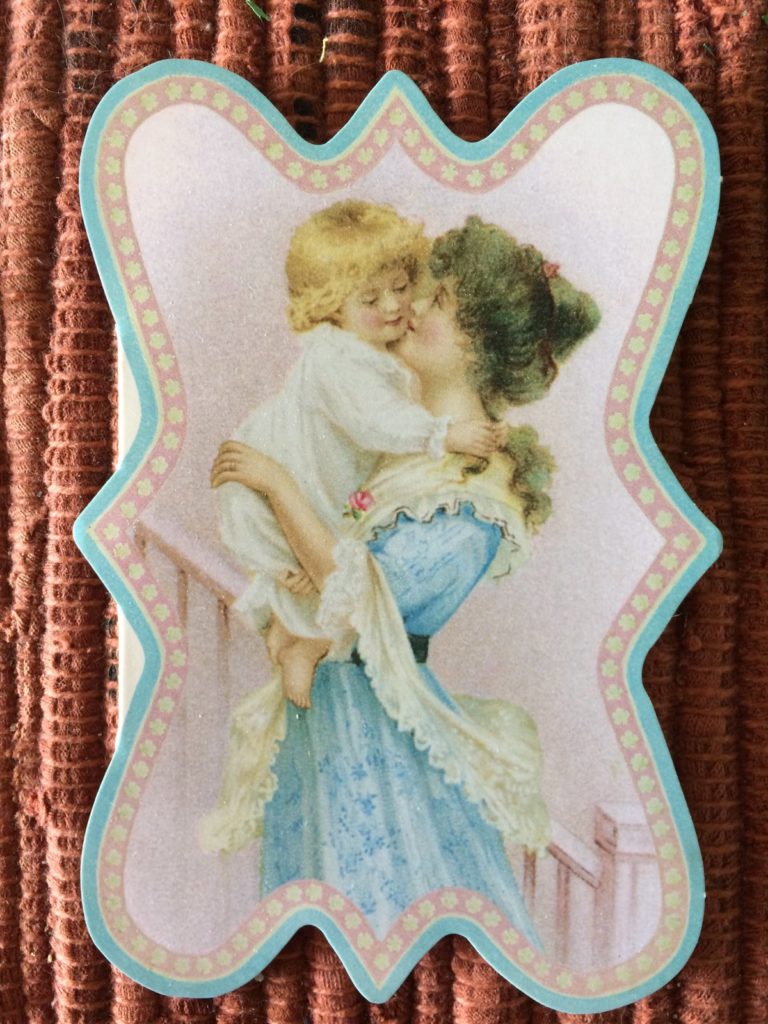
This week I had DNA sampling to consider possible future cancer treatments, although I’m presently doing well. What I’d really like is a DNA sample of that baby hair. My siblings have children with copper highlights. When our Julie’s peach fuzz grew into shiny ginger curls like her cousin Kristen’s, I asked my Dad, “What’s the story with these red heads?” He said he had seven red-headed cousins and numerous carrot-tops preceded them.
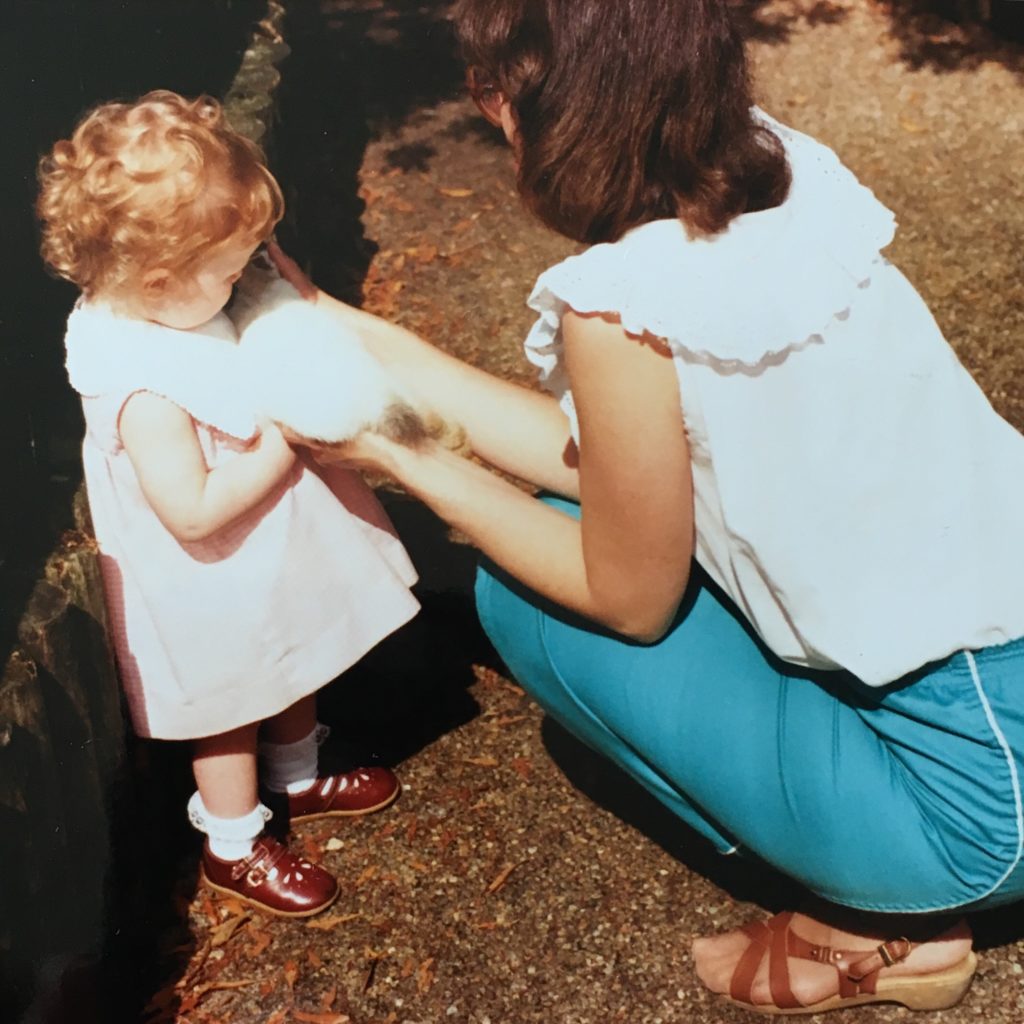
I wish I’d asked him if he knew which mama might have clipped this heirloom lock of hair. Are her birth and death listed on the genealogy pages in the family Bible that Grandma also gave me? Could this be the farm where he spent his summers as a lad?
*****
Jumping forward over a hundred years, my daughter Tara says she was a free range child. Her boys giggled, but that describes many a childhood spent playing outdoors, biking and creating hiding places.
I remember my own Mother blowing a whistle when the summer sun finally set, calling her free range children home. I resisted, yet my little legs were quickly ready to climb into bed.
This all led my thoughts to a poem Ray Jones posted on Facebook that his Grandmother Jones recited to him as a boy, “Are All the Children In?” Written by Florence Jones Haley, it was published in the Louisville Courier Journal, March 14, 1947. Here are a few verses:
I
think oft times as the night draws nigh
Of an old house on a
hill,
Of a yard all wide and blossom-starred,
Where the
children played at will.
And when the deep night at last came
down,
Hushing the merry din,
Mother would look all around
and ask,
“Are all the children in?”
.
. .I wonder if, when those shadows fall,
On the last short
earthly day,
When we say goodbye to the world outside,
All
tired of our childish play.
When we meet the Lover of boys and
girls,
Who died to save them from sin,
Will we hear Him ask
as mother did
“Are all the children in?”
(http://nyobbc.org/html/resources/poems/all_children.htm)
*****
After my Mother died we found a note asking us to share the following, her legacy of faith: “But the fruit of the Spirit is love, joy, peace, patience, kindness, goodness, faithfulness, gentleness, self-control.” (Galatians 5: 22-23)
And this: When you speak, ask, “Is it true? Is it kind? Is it necessary?”
A month after we said good-bye to her, we welcomed our grandson Elias Daniel. There is a bitter-sweetness in the natural progression of generations that pulls at my heart. Eli, now eight, pranced with squeals through a water hose this Memorial Day. Jim and I enjoyed a picnic at our daughter and son-in-law’s new home in Pittsburgh, the first time all our offspring were together since breast cancer entered our lives.
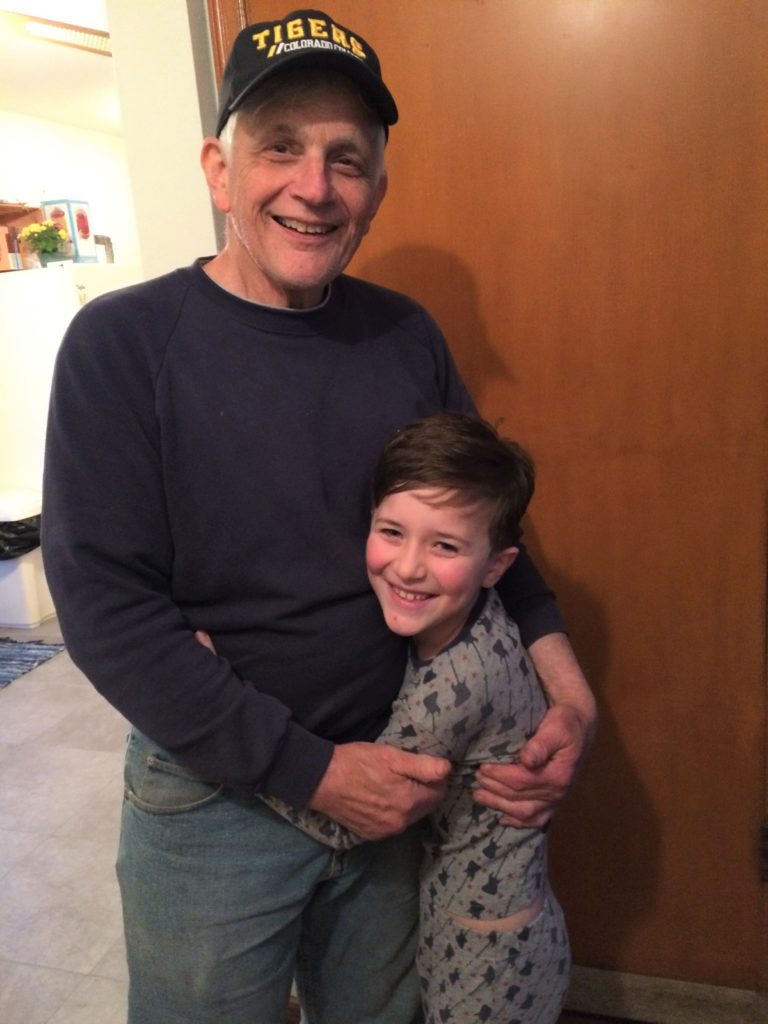
& Papa
Henri Nouwen says faith is radically trusting that home is a place where we can always return, like a prodigal son. It’s our true abode, no matter how far we roam. Home, from a child’s perspective, is where parents live. Spiritually, home is dwelling with our heavenly Father.
He invites us in as if He’s been waiting for us– like a mother at sunset – because He has.
All will be well.
“All your children will be taught by God, and great will be the peace of your children.” (Isaiah 54:13)
Texting Thru Recovery/Indiana Gazette
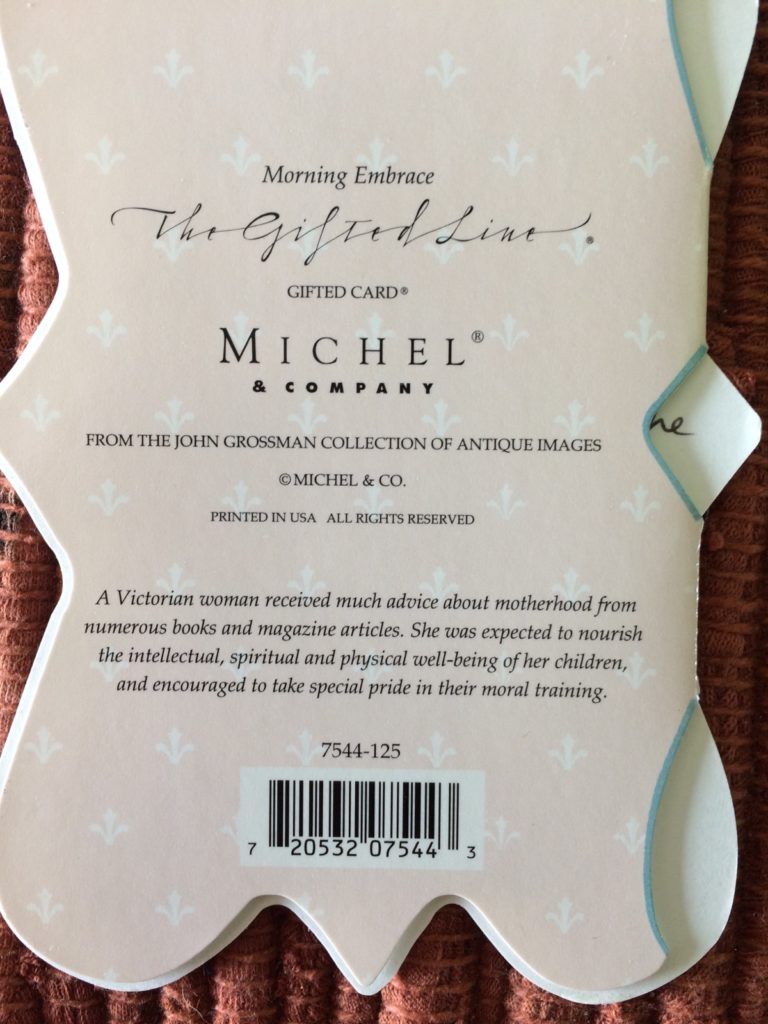
that Julie sent to me, this year

2 COMMENTS
I enjoyed reading about your family history! And also about your gingers. My son has a rich red head of hair. My father said that the color was the same as his grandfather’s hair color before it turned white with age. That would mean that his hair color came from his great great grandfather!
The poem brought me to tears. My childhood was “free range” too. Fourteen years in Shippensburg with grandparents, aunt, uncle, and two cousins living within a three mile range. Then State College with two aunts two uncles, and four cousins living within a five mile range. Each of those family homes and ours, were places of full acceptance and open armed welcoming love. We were so fortunate to grow up that way.
Thanks for sharing, Janet. I think a lot of us can relate to that poem … you can find all the verses using the link.
Comments are closed.